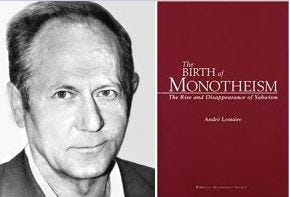Some reference sources
A few of the books and papers used for this online dissertation
These are the primary books from which I will cull material for my admittedly bizarre but serious thesis, that Yahweh, the earliest and only entity claiming to be god, the ineffable god too, although the very presence of this being undercuts that very idea: ineffability.
The books are not from fringe authors but renowned and credible scholars who've established academic or research credibility: Karen Armstrong - Reputable scholar/author extraordinaire James L. Kugel - Starr Professor of Hebrew at HarvardMark S. Smith - Skirball Professor of Bible Studies, NYUHoward Eilberg-Schwartz - Associate Professor of Jewish StudiesSusan Nidich - Samuel Green Professor of Religion at Amherst et al.And I've already noted Andre Lemaire and Reza AslanThe papers [PDFs from Google Scholar mostly] are by similar credited academics or scholars: Jed Robinson BYU, Kevin Barney BYU, Joseph Fontenrose U of California, Bernard McGinn U of Chicago, Robertson Smith Jewish Quarterly 1889, Jan Joosten Strasbourg, Theodore J. Lewis U of Chicago, Nissim Amzallag BGU, Peter Hayman U of Edinburgh, et al.
RR
POSTED BY RRRGROUP AT 1:04 PM0 COMMENTS
WEDNESDAY, MARCH 03, 2021
The Birth of God: Yahweh
Copyright 2021, InterAmerica, Inc.
The inspiration to present a thesis that the Israelite God, Yahweh, was human or something akin to human stems from readings, initially, of André Lemaire’s The Birth of Monotheism: The Rise and Disappearance of Yahwism[Biblical Archaeology Society, Washington D.C., 2007]:
https://en.wikipedia.org/wiki/Andr%C3%A9_LemaireAnd Reza Aslan’s God: A Human History [Random House, NY, 2017]:https://en.wikipedia.org/wiki/Reza_Aslan
Both scholars accept or promote the idea that the Israelite God was a physical being, one that existed alongside of and in proximity to the Canaanite God EL (EL a sobriquet for God or gods in the Middle East circa 2000 B.C.Pushing through the archaeological record and mythological lore into the extant records for the period and whatever historical references one can rely upon, the matter of Yahweh’s or El’s actual existence becomes more than complicated. It forces inserts that are not only esoteric, but bizarre and pungent within the religious arena: Yahweh’s phallus will be discussed, as well as his alleged wives (or consorts). His physiognomy and appearance generally. And other human-like attributes. Then there is the so-called greater God EL, about whom the existence is foggy and diverse to the point of almost total obscurity While all this has to be presented and taken into account, I find myself lured to the idea of God’s [Yahweh’s] birth, his appearance on Earth, in the Middle East, from whom or what. That this physical being was real is beyond question. That he proclaimed to be God is also without question. But what human being would determine they were God and from whence did the idea of God derive? The matter has been avoided by scholars, as they skirt the inquiry, taking the view, I think, that God was (and is, maybe) – God as a given, existent ex nihilo, apparently. That’s what I’m disputing: God came upon humanity, from a being who thought or pretended to be God. But from where did that being get the idea of God? That’s where we have to go to find out how the idea, the concept arose.
RR
POSTED BY RRRGROUP AT 11:22 AM0 COMMENTS
ABOUT ME
ANN ARBOR/FORT WAYNE, MICHIGAN/INDIANA, UNITED STATES
A group of media guys




